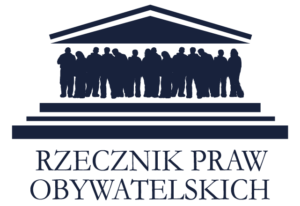 – A citizen was denied the right to enter a session of the Commune Council in Krościenko Wyżne with the government pandemic restrictions cited as the reason
– A citizen was denied the right to enter a session of the Commune Council in Krościenko Wyżne with the government pandemic restrictions cited as the reason
– However, these regulations could not establish either a ban or a restriction on citizens attending the commune council’s sessions – the Ombudsman points out to the wójt
– Thus, the citizen’s right arising from Article 61 (2) of the Constitution was infringed
– The Ombudsman asked the wójt to ensure that this constitutional right of the citizens to attend the commune council’s meetings is respected
A citizen was prevented from entering the session of the Krościenko Wyżne Commune Council on 2 September 2020. The legal basis for this was the Ordinance of the Wójt of 1 September 2020 on the restriction of the performance of public tasks by the Commune Office – issued pursuant to the regulation of the Council of Ministers of 7 August 2020 concerning the establishment of specific restrictions, orders and bans in connection with the state of epidemic.
However, in accordance with § 21 (1) of this regulation, the performance of tasks by a public administration office or an organisational unit carrying out public tasks may – until further notice – be subject to a restriction. In such a case it consists exclusively in the performance of tasks necessary to provide assistance to citizens. And in public administration offices or organisational units carrying out public tasks the permitted number of clients remaining at the same time in one room may not exceed 1 per service desk, excluding persons carrying out tasks involving the provision of client support.
This means that the restrictions introduced in connection with the epidemic may refer exclusively to public administration offices and organisational units appointed to carry out these tasks – as well as clients who have attended in order to deal with a public administration matter.
Thus, these restrictions do not apply to a commune council which is not a public administration office or an organisational unit but the local district’s decision-making body. Neither do they apply to citizens exercising their constitutional right to enter a commune council’s meeting. This is because the latter are not “clients dealing with a matter in the office”.
There is no doubt, therefore, that neither the regulation of the Council of Ministers of 7 August 2020 nor the order of the commune executive body issued under that regulation could establish a ban or restriction on the citizens’ attendance of the commune council’s session.
The inability to introduce a ban through these acts also arises from Article 61 (3) of the Constitution. It states that the restriction of the right to information about activity of public authorities may be introduced exclusively due to the protection of freedoms and rights of other persons and business entity and the protection of public order, security or important economic interests of the state, specified in laws.
As a result of the refusal to let the citizen in to the room in which the session of the Commune Council was held, the Ombudsman declared that the citizen’s right arising from Article 61 (2) of the Constitution had been violated.
“Therefore, I am requesting that the Wójt undertakes appropriate actions in order to ensure that the citizen’s constitutional right to enter the Commune Council’s meetings are respected,” wrote Deputy Ombudsman Maciej Taborowski to Wójt Mateusz Liput.
—
Translation of a text published on the Polish Ombudsman website https://bip.brpo.gov.pl/pl/content/interwencja-rpo-obywatel-niewpuszczony-na-obrady-rady-gminy
Translated for the project: Enhancing Local Level Democracy and Participation in the Post-Pandemic period in CEE (2021-2023) by K-Monitor (HU), Oziveni (CZ), Citizens Network Watchdog Poland (PL) and Funky Citizens (RO)
Funded by the National Endowment for Democracy


Comments